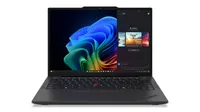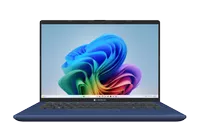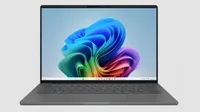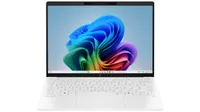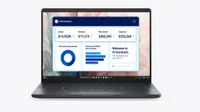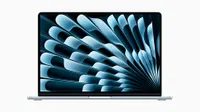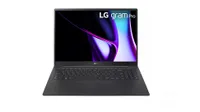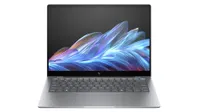The lightest laptops of 2025: Where performance meets featherweight portability
Super-light laptops are here - and they mean business
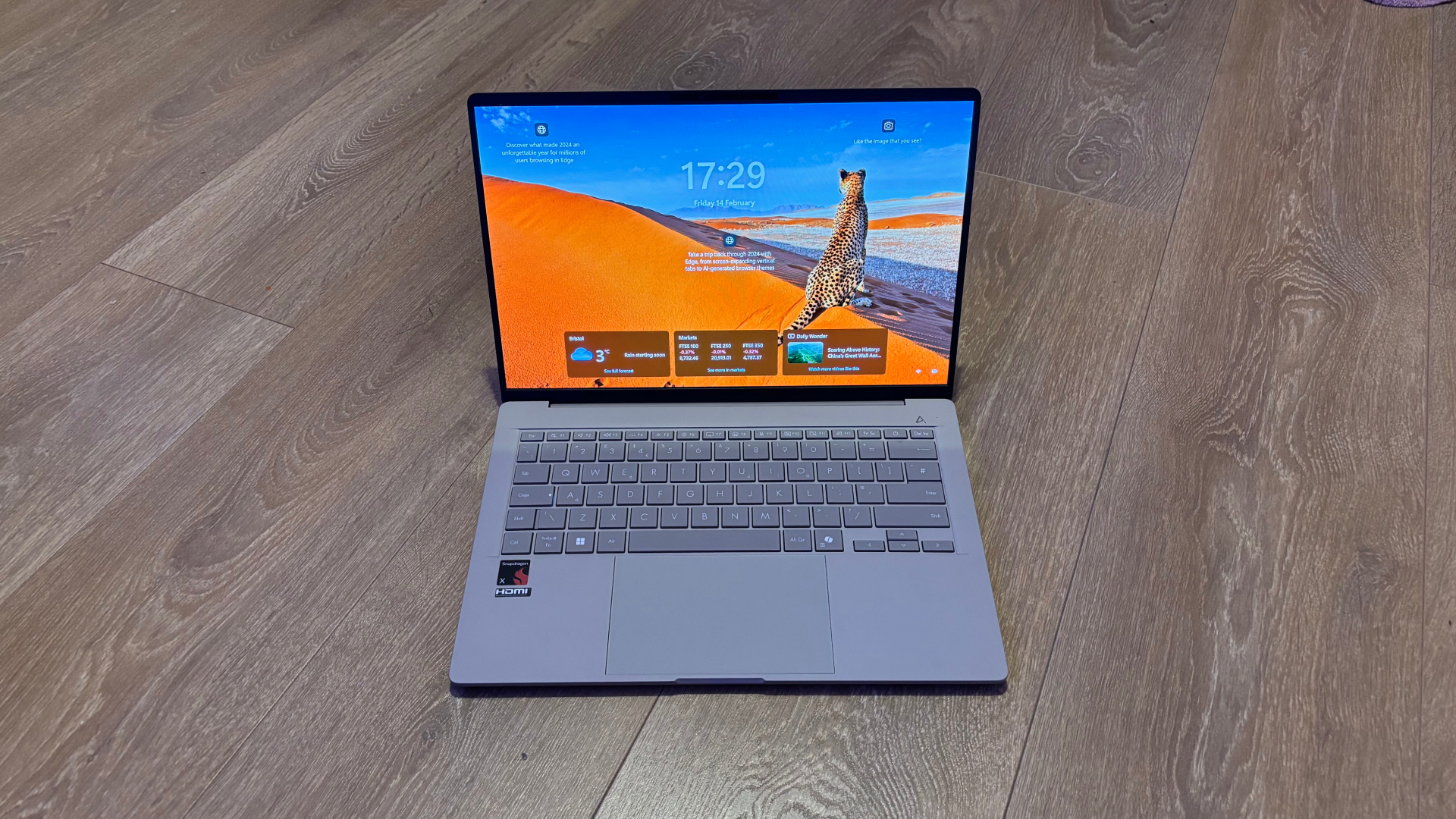
Sign up for breaking news, reviews, opinion, top tech deals, and more.
You are now subscribed
Your newsletter sign-up was successful
As remote work and global mobility continue to shape the way many businesses run, demand for the lightest laptops is on the increase. And laptop makers are doubling down on ultra-portable designs that suit the needs of hybrid teams. For companies looking to equip their workforce with sleek, travel-friendly devices, thin and light laptops are for many the go-to choice.
These machines regularly dominate the best business laptop lists - not just for their portability, but also for their premium build quality. Of course, that kind of featherweight engineering usually comes at a high price, making them a more viable option for organizations with the budget to match.
To help you navigate the crowded landscape, we’ve pulled together a curated roundup of the lightest laptops you can get. Our round-up is ordered by weight, but the screen sizes vary, so compact 13-inch models will obviously be lighter than larger 16-inch models. Because some of the laptops are brand new - like the Portégé Z40L-N and ThinkPad X13 Gen 6 - they might not yet be available to buy online, but they will be soon.
In past round-ups, we’ve focused on Intel and AMD models, but it’s hard to ignore the arrival of Qualcomm Snapdragon AI laptops, so we’ve covered those too this time around. We’ve intentionally left out detachable tablets with clip-on keyboards, and sub-10-inch devices that lack touchpads.
The Lenovo ThinkPad X13 Gen 6, unveiled at MWC 2025, is even lighter than its predecessor, starting at just 933g (2.05lb) - down from 1.12kg - making it one of the lightest full-featured business laptops available. It offers a choice of Intel Core Ultra 200H or 200U or AMD Ryzen AI PRO 300-series processors and can be configured with up to 64GB of soldered LPDDR5x RAM and up to a 2TB SSD.
It supports Wi-Fi 7, optional 5G connectivity, and comes with either a 41Wh or 54.7Wh replaceable battery. The X13 Gen 6 features a bio-based carbon fiber chassis, 90% recycled magnesium, and 55% recycled aluminum.
It will be available starting June 2025, with pricing from $1,139.
Japanese laptop vendor Dynabook, formerly known as Toshiba, has been making ultralight laptops for years. Its newest business-focused Copilot+ PC, the Portégé Z40L-N, announced in March 2025, weighs under 1kg, features a swappable battery, and includes a LAN port.
Built for productivity and mobility, it runs on Intel’s latest Core Ultra Series 2 processors with an embedded NPU for AI workloads, Intel Arc Graphics, and Wi-Fi 7. The 14-inch 16:10 WUXGA display is housed in a MIL-STD-810H magnesium alloy chassis.
There are two configurations available, starting at $1,699, with up to 32GB RAM and up to a 1TB SSD, and both weigh from 959g (2.11lb).
Weighing just 980g (2.16lb), the Asus Zenbook A14 is designed to rival Apple's MacBook Air (in our Asus Zenbook A14 review we noted it's so light, we forgot we even had it in our bag). Announced at CES 2025, it features a Qualcomm Snapdragon X processor. The 14-inch OLED (1920 x 1200) base model, priced at $1,199.99, includes 32GB RAM and a 1TB SSD.
The A14 is equipped with a 70Wh battery and includes two USB 4 Type-C ports, one USB-A 3.2 Gen 2 port, a 3.5mm headphone/mic jack, and an HDMI 2.1 port.
Its magnesium alloy chassis is coated with Asus' "Ceraluminum," which the company claims is 30% lighter and three times stronger than anodized aluminum.
Dell’s lightest laptop remains the Latitude 7350, weighing in at just 989g (2.18lb). You can read our review here - it’s designed for hybrid workers and travelers, and the base model features a 13-inch display, Intel Core Ultra processors, 16 GB LPDDR5x RAM and 256 GB SSD. Ports include two Thunderbolt 4. HDMI, DisplayPort and USB 3.2.
Although Dell is transitioning away from the Latitude name in favor of the new Pro lineup (which makes an appearance just below), the 7350 is still one of the most portable business-class laptops available.
It will set you back from $1,579.00.
The brand new 13.3-inch OmniBook 7 Aero 13 weighs approx 998g (2.2lb) and is powered by up to an AMD Ryzen AI 7 350 processor, with AMD Radeon 860M integrated graphics, 32GB of RAM, and a 1TB SSD.
Available in Ceramic White, it includes two USB 3.2 Gen 2 Type-C ports (DisplayPort 2.1), one USB 3.2 Gen 2 Type-A port, one USB 3.2 Gen 1 Type-A port (5Gbps), one HDMI 2.1 output, and a headphone/microphone combo jack.
The 43Wh battery delivers up to 12 hours and 15 minutes of mixed usage. While global pricing isn’t available yet, it’s on sale in Singapore for S$1,899.00, approximately $1,426.15.
The Dell Pro 13 Premium Laptop is the successor to the Latitude 7350, with a magnesium chassis and a slightly heavier footprint. It weighs 1,071g (2.36lb) and is powered by an Intel Core Ultra 5 236V processor with a 40TOPS NPU, 8 cores, and up to 4.7GHz.
It features integrated Intel Arc graphics, 16GB LPDDR5x RAM, and a 512GB TLC SSD. Ports include 2 Thunderbolt 4 (40Gbps), 1 USB 3.2 Gen 1 (5Gbps) and 1 HDMI 2.1 port. It also offers an 8MP HDR+IR camera, Wi-Fi 7, Bluetooth 5.4, and a 3-cell 60Wh battery.
It’s priced from $1,979.00.
No roundup of lightweight laptops would be complete without the MacBook Air 13. It isn’t the lightest, but at 1,240g (2.7lbs) it’s far from heavy, and features Apple’s M4 chip with an 10-core CPU and up to a 10-core GPU (read our review here). The 13.6-inch Liquid Retina display delivers vivid visuals, while the fanless design ensures silent operation.
The base model comes with 16GB of unified memory and a 256GB SSD.
It includes two Thunderbolt/USB 4 ports, MagSafe 3 charging port, Wi-Fi 6E, Bluetooth 5.3 and up to 18 hours of battery life.
It’s priced from a respectable $999 in Sky Blue, Silver, Starlight or Midnight finishes.
If you're after a lightweight laptop with a larger screen, the LG Gram Pro 16 fits the bill. It has a 16in OLED display and features up to an Intel Core Ultra 9 (Series 2) CPU, up to 32GB LPDDR5X memory, and a 2TB NVMe SSD.
Graphics are powered by Intel Arc graphics or an Nvidia RTX 3050 GPU. Despite its 16-inch display, it weighs only about 1,270g (2.8lb), making it one of the lightest large-screen laptops on the market.
It’s available in a sleek Metal Gray trim and starts at $1,899.99.
Weighing approximately 1,348g (2.97lb), the HP OmniBook X is powered by a Qualcomm Snapdragon X Elite processor with a dedicated NPU for AI tasks. It has a 14-inch OLED touchscreen with a resolution of 2240 × 1400, 16GB of LPDDR5x RAM, and 1TB SSD.
Ports include one USB Type-A, two USB Type-C, and a headphone/mic combo jack. It offers up to 28 hours of battery life and supports Wi-Fi 7 and Bluetooth 5.4.
HP OmniBook X 14 comes in Ceramic White or Meteor Silver and pricing is from $1,249.99.
- We've built a list of the best Ultrabooks out there
- Here's our list of the best thin and light gaming laptops available
- We've also rounded up the best mini PCs for desktops
Sign up to the TechRadar Pro newsletter to get all the top news, opinion, features and guidance your business needs to succeed!

Wayne Williams is a freelancer writing news for TechRadar Pro. He has been writing about computers, technology, and the web for 30 years. In that time he wrote for most of the UK’s PC magazines, and launched, edited and published a number of them too.
You must confirm your public display name before commenting
Please logout and then login again, you will then be prompted to enter your display name.
